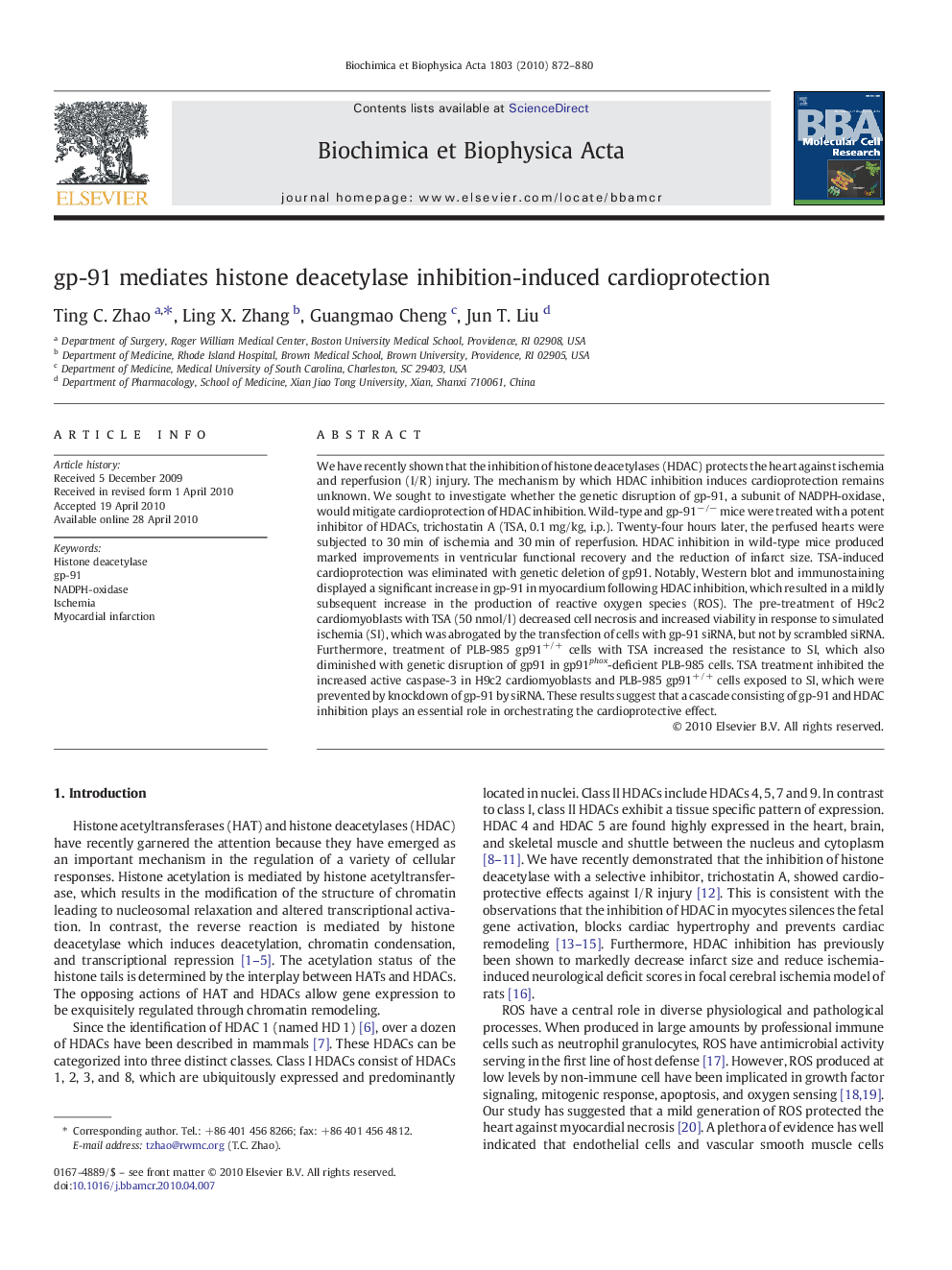| Article ID | Journal | Published Year | Pages | File Type |
|---|---|---|---|---|
| 10802919 | Biochimica et Biophysica Acta (BBA) - Molecular Cell Research | 2010 | 9 Pages |
Abstract
We have recently shown that the inhibition of histone deacetylases (HDAC) protects the heart against ischemia and reperfusion (I/R) injury. The mechanism by which HDAC inhibition induces cardioprotection remains unknown. We sought to investigate whether the genetic disruption of gp-91, a subunit of NADPH-oxidase, would mitigate cardioprotection of HDAC inhibition. Wild-type and gp-91â/â mice were treated with a potent inhibitor of HDACs, trichostatin A (TSA, 0.1Â mg/kg, i.p.). Twenty-four hours later, the perfused hearts were subjected to 30Â min of ischemia and 30Â min of reperfusion. HDAC inhibition in wild-type mice produced marked improvements in ventricular functional recovery and the reduction of infarct size. TSA-induced cardioprotection was eliminated with genetic deletion of gp91. Notably, Western blot and immunostaining displayed a significant increase in gp-91 in myocardium following HDAC inhibition, which resulted in a mildly subsequent increase in the production of reactive oxygen species (ROS). The pre-treatment of H9c2 cardiomyoblasts with TSA (50Â nmol/l) decreased cell necrosis and increased viability in response to simulated ischemia (SI), which was abrogated by the transfection of cells with gp-91 siRNA, but not by scrambled siRNA. Furthermore, treatment of PLB-985 gp91+/+ cells with TSA increased the resistance to SI, which also diminished with genetic disruption of gp91 in gp91phox-deficient PLB-985 cells. TSA treatment inhibited the increased active caspase-3 in H9c2 cardiomyoblasts and PLB-985 gp91+/+ cells exposed to SI, which were prevented by knockdown of gp-91 by siRNA. These results suggest that a cascade consisting of gp-91 and HDAC inhibition plays an essential role in orchestrating the cardioprotective effect.
Related Topics
Life Sciences
Biochemistry, Genetics and Molecular Biology
Biochemistry
Authors
Ting C. Zhao, Ling X. Zhang, Guangmao Cheng, Jun T. Liu,
